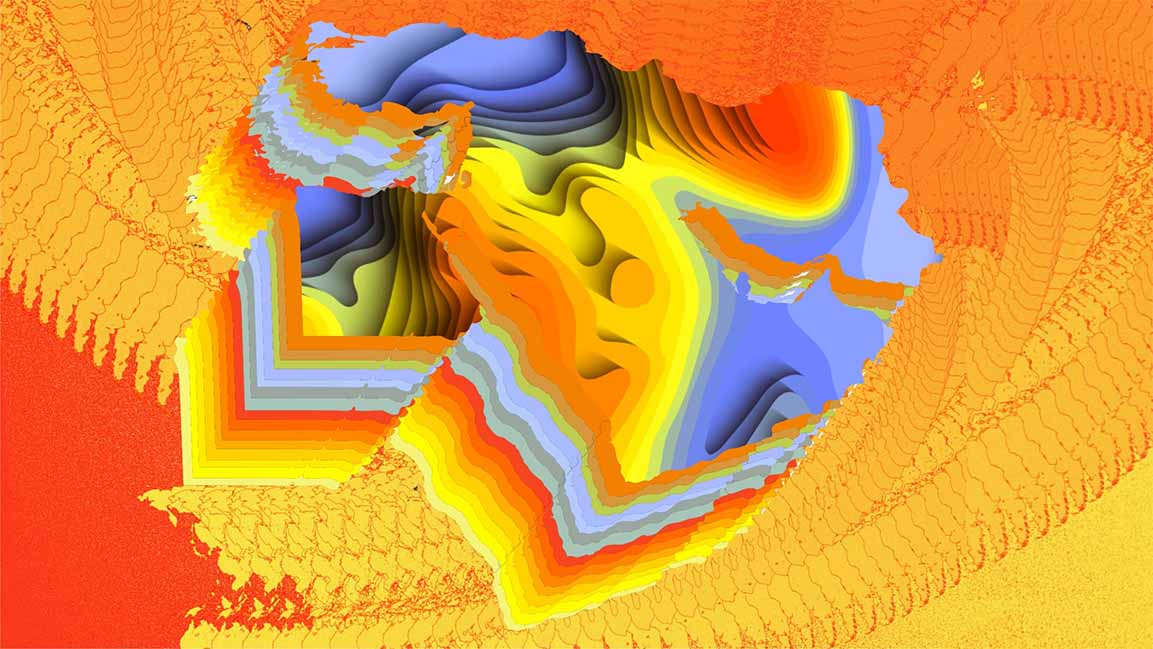- | 9:00 am
How this Abu-Dhabi startup aims to be the Google of temperature
This startup is building an integrated model to help cool cities at scale.

The weather reader once played an important role in weather and climate prediction guided by satellite imagery. However, with the world heating at an alarming rate, serious data gaps exist that severely undermine the effectiveness of climate-related decision-making. Fog, heat waves, wind, and temperature changes are some instances where satellite imagery cannot provide an accurate representation.
According to the World Bank, climate change could drive 216 million people to migrate within their own countries by 2050, with hotspots of internal migration emerging as soon as 2030, spreading and intensifying after that.
Launched in 2020, Abu Dhabi-based cleantech startup FortyGuard – named after the Ozone layer – aims to provide hyperlocal mobile sensing data analysis to report on thermal conditions for urban design, integrated with the city geographic information system (GIS).
“The problem we’re solving is that data today only comes from satellites which are expensive and less accurate. So the opportunity that FortyGuard is leveraging involves untapped existing data sources of temperature to enable predictive analytics,” says Jay Sadiq, founder and chief visionary officer at FortyGuard.
Imagine having access to temperature data and driving decisions based on it – choosing a house, a park, a walking route – that, in the long run, is a more holistic approach to life. “We will have almost one-meter square granularity shortly. What this means is having the capability to report temperature almost every minute globally,” adds Sadiq.
THE STAKES AT HAND
The International Panel on Climate Change (IPCC) forecasts that the global temperature will rise in the next 100 years; the temperature rise in 2100 relative to 2000 would range from 1.4 to 5.8 °C under different adaptation scenarios. Temperatures are rising in 500 cities, but there needs to be data to benchmark the problem, Sadiq says. Additionally, temperatures can vary by 15˚C in a city using smart locational data. Architects and engineers don’t have data to guide design with cooler outdoors.
“FortyGuard is helping designers receive granular analysis to benchmark the problem with heat up to 1 meter, we then provide them with the insights and data to cool the outdoors,” says Sadiq.
“City managers pay for expensive sensors and operations to get static temperature heat-maps and geospatial companies can’t develop GIS temperature applications with satellite data because it is not granular enough,” he adds.
HOW DOES IT WORK?
FortyGuard’s solutions are all-encompassing. It involves collecting data on elevated city temperatures, then formulating solutions based on predictive analytics and ML models, then deploying tailored solutions to fit respective urban settings, and adding alternative coatings to city surfaces developed via material science technology.
Currently, the startup provides sustainability hub Masdar City with automated and customized AI visuals on an interactive dashboard integrated with GIS, 3D mapping data, and cooling insights of a particular area.
“We are building the brain or Google of temperature, a machine learning model with cloud-based capability,” says Sadiq.
“We provide a humidity report, an index where you coordinate temperature data with humidity data. We work with other environmental data and help federal clients that we work with monetizing environmental data locally and globally, and achieve environmental ESG commitments and net-zero ambitions,” he adds.
THE ROAD TO COP28
Sadiq predicts the cleantech sector to receive a major boost with the onset of COP28. “Cleantech is still emergent but rapidly advancing to the point we can expect UAE to become a leader in the environmental tech sector.”
In terms of scaling his business, Sadiq says scaling the AI model at FortyGuard is a priority. “We provide clients with cooling insights through which they can passively cool the city so they’re more sustainable, durable, and resilient. When it comes to the UAE, they’re not only taking the lead when it comes to net-zero, but also looking at usable applications”.
“We may be based in Abu Dhabi, but our vision is global. Our technology is built in the UAE and we export it to other countries with market-fit adaptability. Our position in the cleantech sector offers a great opportunity to leverage our data sets for carbon capture optimization and sale of data insights,” adds Sadiq.







































